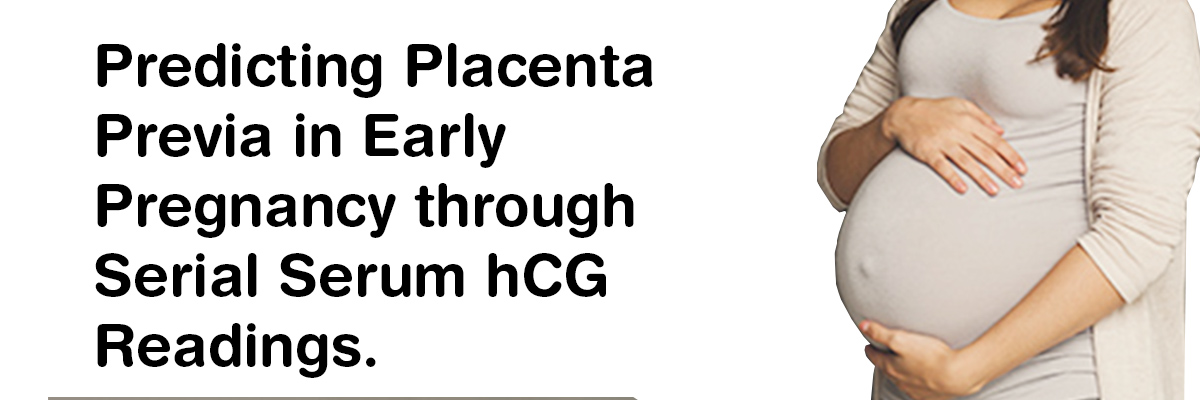
 IJCP Editorial Team
IJCP Editorial Team
Predicting Placenta Previa in Early Pregnancy through Serial Serum hCG Readings
The abnormally sited placenta can be a fatal condition for pregnant women, and hence early diagnosis and management is crucial to decrease mortality and morbidity.
A recent study evaluated the role of beta-human chorionic gonadotrophin (B-HCG) level in the first half of pregnancy as a marker for predicting placenta previa. It included 57 patients between 14 and 18 weeks of gestational age who underwent serum human chorionic gonadotropins measurement. Patients who developed placenta previa were diagnosed based on the development of vaginal bleeding either late in the second trimester or early in the second trimester. All patients who developed vaginal bleeding underwent routine ultrasound scans to confirm placenta previa.
The study found-
- 14 among 57 women had placenta previa, and they were significantly different from women with normal placenta.
- The receiver operator characteristics curve showed the optimum cutoff value of mean serum HCG > 105,380 IU in 14 weeks of gestation, with sensitivity and specificity of 100% and 72.2%, respectively.
This study highlights that TB-HCG level in the first half of pregnancy is a good predictor marker for placenta previa.
Hussein SS, Qader MMA, Akram W. Prediction of Placenta Previa from Serial Reading of Serum Human Chorionic Gonadotropin Late in the First Half of Pregnancy. J Obstet Gynecol India. 2023. https://doi.org/10.1007/s13224-023-01786-4

IJCP Editorial Team
Comprising seasoned professionals and experts from the medical field, the IJCP editorial team is dedicated to delivering timely and accurate content and thriving to provide attention-grabbing information for the readers. What sets them apart are their diverse expertise, spanning academia, research, and clinical practice, and their dedication to upholding the highest standards of quality and integrity. With a wealth of experience and a commitment to excellence, the IJCP editorial team strives to provide valuable perspectives, the latest trends, and in-depth analyses across various medical domains, all in a way that keeps you interested and engaged.






















Please login to comment on this article